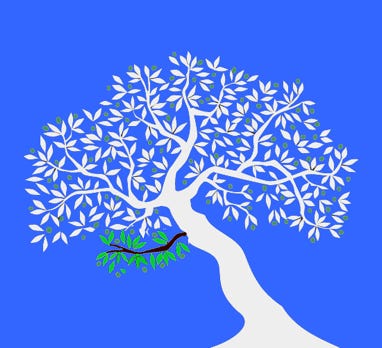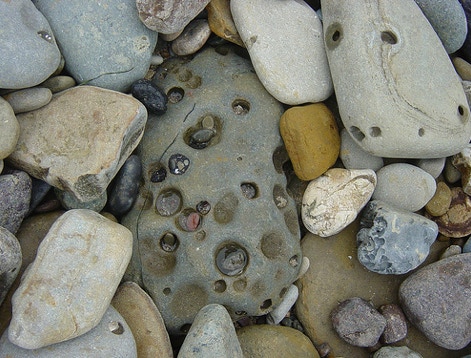
Grafted Branches

Grafted Branches

Like Water on a Rock
When asked, "What would it take for you to believe in God's existence?” people generally answer in one of two ways.
Here are two typical answers to this question:
"Undeniable, obvious, indisputable evidence that there is such a thing as a god."
"That's an easy question to answer. It would take a little thing called - EVIDENCE. Evidence for their existence. So far, none exists, and I remain an atheist until that evidence comes along. But, it better be good!"
The answer can be said in one word, "evidence." But the real question should be this, does a real indisputable miracle change the minds and hearts of people? The truthful answer is an unequivocal no!
"Now hold it," you say to me, "if I saw a verifiable miracle, I would believe." The only problem is history and experience demonstrate that not only people won’t believe, they will not change their minds or ways. The most dramatic biblical example is the Pharaoh of Exodus, who, after ten miraculous plagues, went to his watery grave as he pursued the people he feared and hated. Even the people, led miraculously away from Pharaoh's slavery and oppression, refused to enter the land. Why? Because of their fears and stubbornness, they stayed in the desert instead of entering the promised land.
A miracle does typically just one thing, meet an immediate need. The starving get fed, a loved one gets healed, an army defeats an overwhelming enemy, or like the people leaving Egypt, the waters safely separate them from their oppressors. After the miracle, there is a time when all of us are thankful. After crossing the sea on dry ground, the people sang a song to God, saying, "The Lord is my strength and song, and He has become my salvation; This is my God, and I will praise Him; My father's God, and I will extol Him." Days later, they forgot about their salvation from death and complained about not having anything to drink.
The people experienced what can only be called a miracle, one that proves the power and existence of God. However, when thirsty, instead of asking God for something to drink, they parked themselves in front of Moses and said, "What shall we drink?" How often, when things get a bit difficult, instead of going to God or becoming part of the solution, we complain. So, what can we do instead of complaining to our leaders, pastors, or God? Let me tell you about one of the most famous and quoted Jewish rabbis in history, Akiva.
He was born Akiva Ben Yosef, about 50 AD, just after the ministry of Jesus. Growing up in what we might call a working family during a tumultuous time for Israel, he had a disdain for the wealthy and controlling classes. Additionally, he intensely disliked and had contempt for religious leaders. As a young adult, he witnesses the destruction of Jerusalem and the Temple by the Romans.
Almost overnight, the very fabric of the world he knew and grew up in was torn and changed. He didn't have a family inheritance (he was an illiterate shepherd), the Temple, which stood for the Jewish faith, was gone, and all that he had was a meaningless life of hard work.
We need to stop and ask ourselves two questions. “Why do I need to know this?” and “how does knowing about this first-century Jewish shepherd relate to my twenty-first century life?” While times, technologies, and governments change, people don't; we need to see ourselves in these historical people and see if there is something in their stories that will help ours.
Akiva's story began when he was forty, most likely while watering the animals under his care. Like so many of us, he had spent the first 40 years of his life doing what he thought was right. He had rejected his Jewish roots, watched the world around him destroyed by the Roman Government, and had nothing to show for any of his efforts. He wasn't a landowner and had to rely on others for his daily employment. So what happened to change Akiva's life in such a dramatic way? I'll let the sages tell his story to you.
What was the beginning of Rabbi Akiva? It is said: He was forty years old and he had not studied anything. One time he stood at the mouth of a well and said: "Who hollowed out this stone?" He was told: "It is the water which falls upon it every day, continually." They said to him: "Akiva, have you not read the verse, 'water wears away stone'?" (Job 14:19). Immediately Akiva drew the inference that the verse applied to himself: "if what is soft wears down the hard, how much the more so shall the words of the Torah, which are as hard as iron, hollow out my heart, which is flesh and blood!" Immediately he turned to the study of Torah. He went together with his son and they appeared before a teacher of young children. Said Akiva to him: "Master, teach me Torah." Akiva took one end of the tablet and his son the other end of the tablet. The teacher wrote down "aleph bet" and he learned it; "aleph tav," and he learned it; the book of Leviticus, and he learned it. He went on studying until he learned the entire Torah.” *
So what began the change in Akiva's heart? He had undoubtedly seen this well, with its water-worn rock, before. In his work as a shepherd, it wasn't the only place he stopped for refreshment, so why did this moment have such a significant impact on him? After forty years of life doing the same thing day after day, he sees the hole in the rock and asks himself why? It wasn't a crisis; there wasn't any supernatural miracle; fire didn't rain down from heaven, just a steady drip, drip, and Akiva remembered what someone had once told him. "It is the water which falls upon it every day, continually," simple words from a story about a man who was tormented in his life, Job. Could it be Akiva, at this moment, was reminded of Job's struggles and saw himself in them? At that moment, he realized how hard his heart and mind were, and the only thing that would soften them was the everyday continual study of God's words.
Akiva poured his entire life into learning Torah. At the age of forty, he learned to read and write, sought out the great teachers of his day, and became one of the greatest sages and teachers in history. All because he saw the power in a steady drip of water, so powerful it changed his life.
So why do we need to consider Rabbi Akiva's life? The most obvious answer is the comparison he made between the power of a drip of water to wear a hole into stone and the words of God. A drip of water isn't a miracle; however, a forty-year-old illiterate man learning to read and write and then becoming a great teacher is a miracle by anyone's measure. It also tells us none of us are too old to have our stubborn and hard as stone hearts softened by learning God's words.
There's also a tiny and probably unnoticed part of this narrative, someone had told Akiva about Job. As Akiva was pondering his life, with all its struggles and daily repetition, he remembered what someone had taught him from the Bible. No one knows who spoke these words to Akiva, but we do know this; he changed the life of Akiva and those of countless future generations.
If we are waiting for a miracle to change our lives, prove the existence of God, or something else, then we are looking for the wrong thing. Only the power of God's words can soften and change us. Maybe like Akiva, we too will see them in the simple and everyday things in life.
* Avot de Rabbi Natan, Version A, chapter 63, Holtz, Barry W.. Rabbi Akiva (Jewish Lives) (p. 39). Yale University Press. Kindle Edition.

Grafted Branches
10940 S. Parker Rd., Parker, Colorado 80134